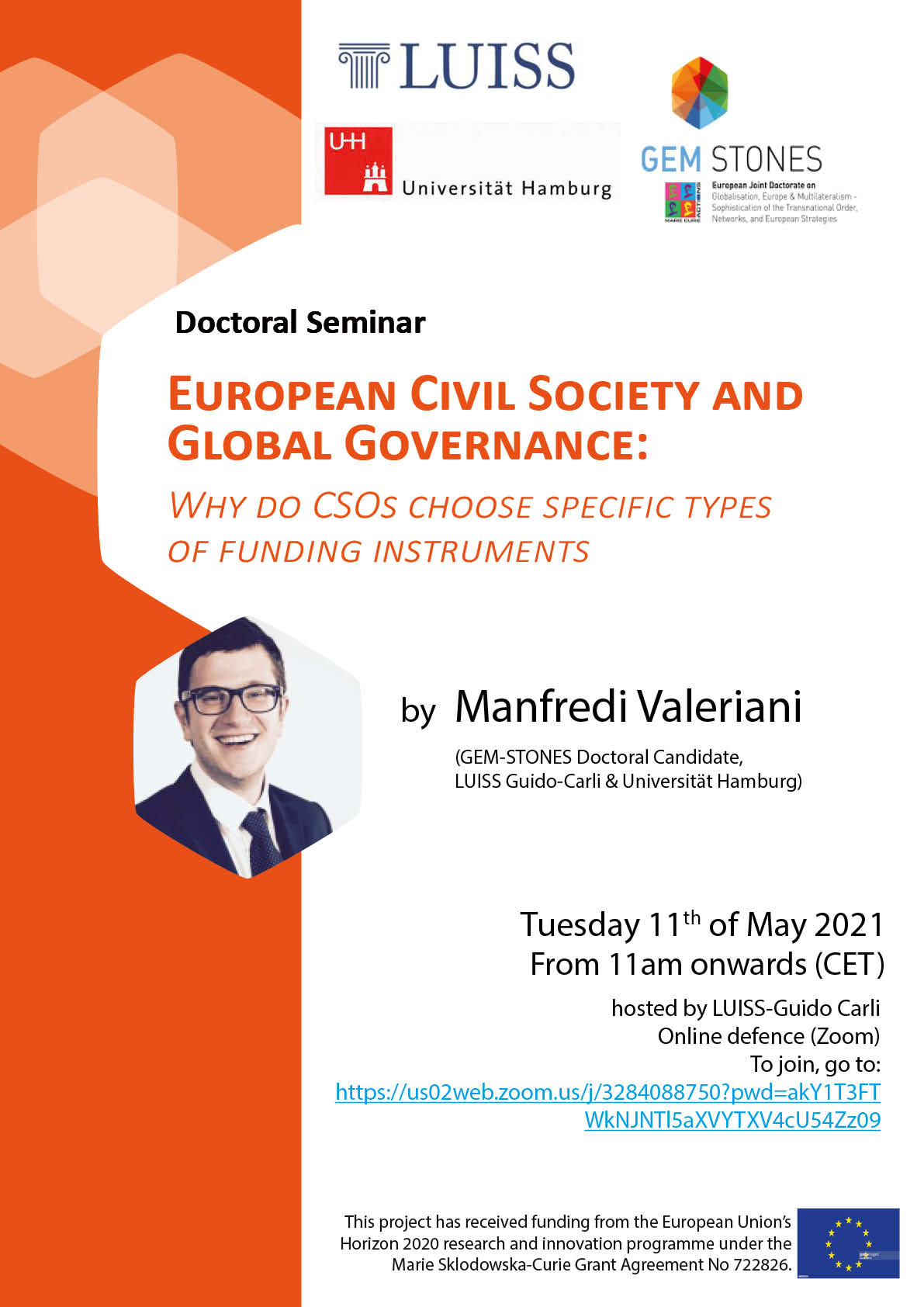Doctoral defence of Manfredi Valeriani
11:00 - 13:00
Online Public Doctoral Defense of Manfredi Valeriani (Universität Hamburg/LUISS)
"European Civil Society Organisations and Global Governance: Why do CSOs choose specific types of funding instruments"
Please connect to the virtual Zoom room Here
The research addresses an important issue related to the growing complexity of the international system. With globalization new actors (namely NGOs) emerged and have acquired more power in international dynamics. While these actors are central to many studies, there are not many works focusing on the internal dynamics, lacking therefore of a comprehensive understanding of these actors’ behavior. The research focuses on the Italian case that present exclusive opportunities for such a research and it upgrades basic Resource Dependency Theory (RDT) with added value from other approaches. In this way the research can analyse the core internal characteristic of these organisations: their nonprofit orientation and their strategies to acquire resources. Moving across the differentiation between public and private funding, the work conducts a mixed methods research in order to comprehensively understand why the organization choose a specific instrument over the other. The mixed methods approach allows for a deep analysis of the issue, looking for correlation among variables trough a preliminary quantitative analysis and defining the casual mechanisms behind this correlation through the application of a process tracing strategy. The research includes a Social Network Analysis (SNA) that, beyond providing an unprecedented picture of the nexus of partnerships of Italian NGOs, it also provides a series of centrality scores that are used in the statistical tests. The results show how NGOs operate between rationality a principle, putting into action a series of different strategies to overcome and manage their structural limits. Differentiation seems to be the most common strategy implemented by NGOs facing high levels of systemic uncertainty. The research and its results show how structural limits and opportunities, together with the organizations’ dedication to the mission relate to their choices and activities. These results need to be addressed while studying these organisations acting on the international stage as they hide important implications for understanding their behavior alone and in relation to other actors of the system. The research is a first step towards this direction and hopefully can set the base for further research

















